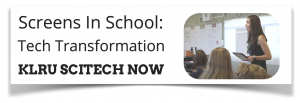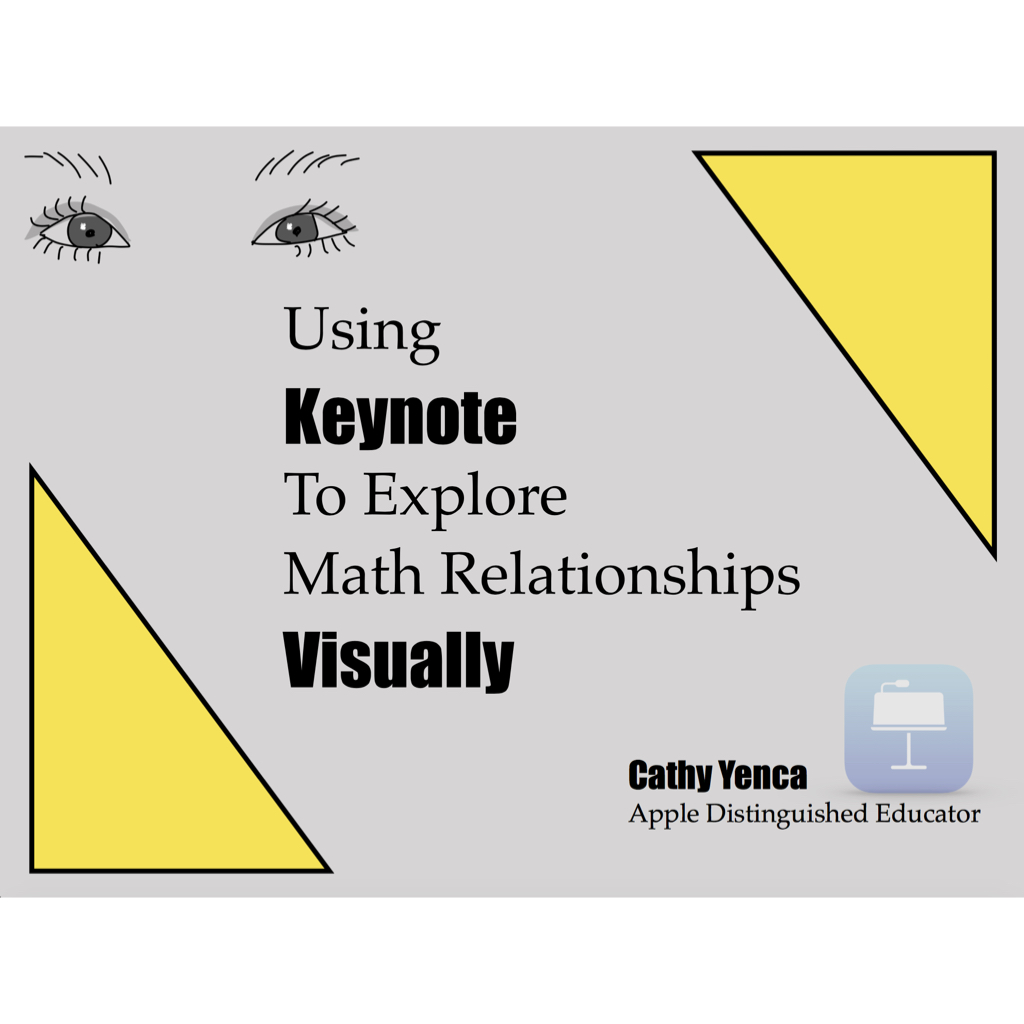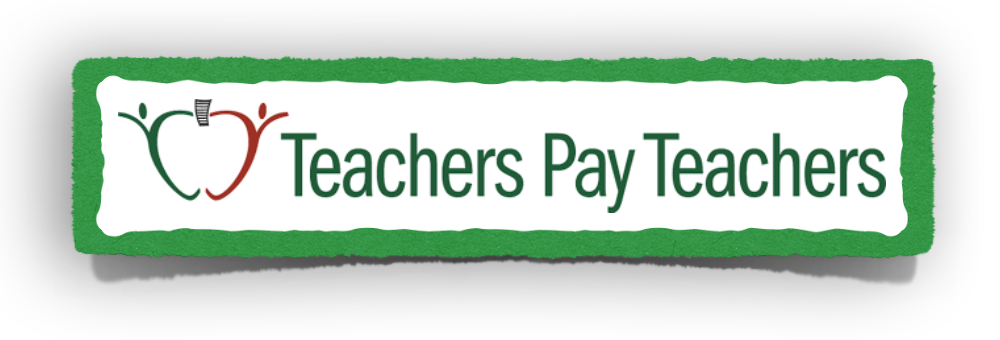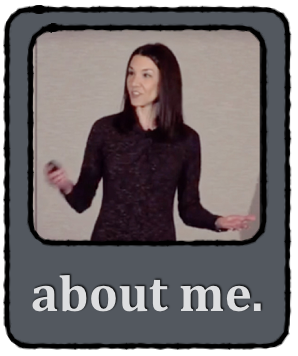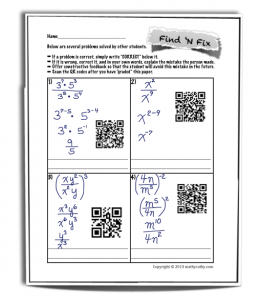 There aren’t many strategies that tell me more about student thinking than “error analysis” opportunities. When students “grade” another hypothetical student’s work, there’s something special about the experience – students’ senses are heightened. They’re on a quest for truth. They feel exceptionally “safe” speaking about the mathematics because the work belongs to “somebody else”.
There aren’t many strategies that tell me more about student thinking than “error analysis” opportunities. When students “grade” another hypothetical student’s work, there’s something special about the experience – students’ senses are heightened. They’re on a quest for truth. They feel exceptionally “safe” speaking about the mathematics because the work belongs to “somebody else”.
Many textbooks do a nice job of incorporating the occasional error-analysis opportunity somewhere toward the end of a problem set. I find error-analysis becomes a more engaging experience if you “set the stage” so-to-speak. For instance, as my algebra students entered class, I handed each of them this sheet —> QRCodeFindNFixErrorAnalysis before they crossed the classroom threshold. Then I said, nonchalantly, “Will you go ahead and grade this for me?” Some students were eager to please me, smiled, sat down, and got to work. Others looked at me as though I’d said something very strange! One girl giggled and said, “Mrs. Yenca, I actually thought you just said you wanted me to grade this!” My response? “Yep! That’s exactly what I just said! Thanks in advance!”
They were on to my gimmick 😉 but that’s okay – each student “graded” the paper silently and individually first, red pen in hand, then paired up after a few minutes to compare with a peer. Finally, students scanned the QR-codes to see if the revealed text message confirmed or denied their work.
But I never stop there – asking random students to take their work to the document camera to present to the class is where the true meat-and-potatoes of this experience happens. As students explain the way they “graded” the paper, they reveal the darndest things about their *own* thinking. MANY students confirm correct work, but for the *wrong* reasons. MANY students struggle with using appropriate academic vocabulary, and need a little encouragement to “talk the talk”. It’s enlightening to have students with different opinions present their work and allow discussion and debate to ensue. Letting them talk is the best part.
How do you use error analysis to enrich classroom discussion? Confirm mathematical understanding? Reinforce vocabulary? Reveal misconceptions?
Andrew Stadel has some rocking resources for error analysis too – check them out here.
Here are a few more I’ve used as well.



